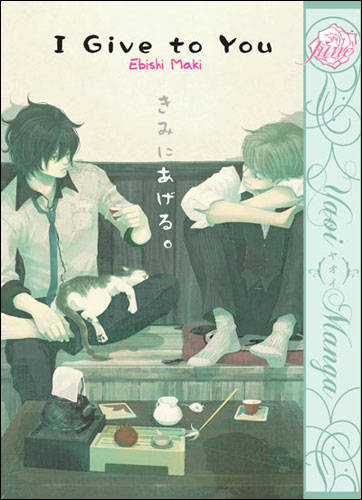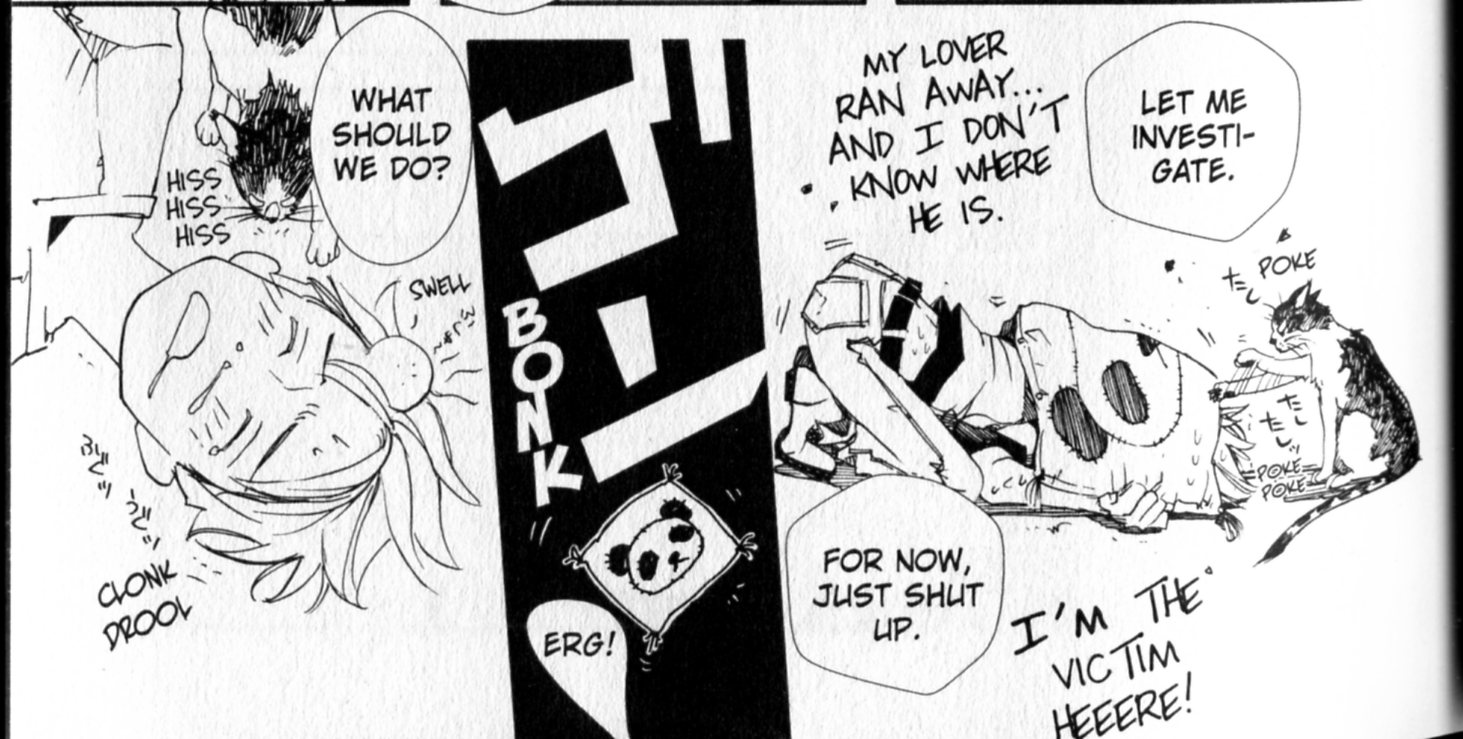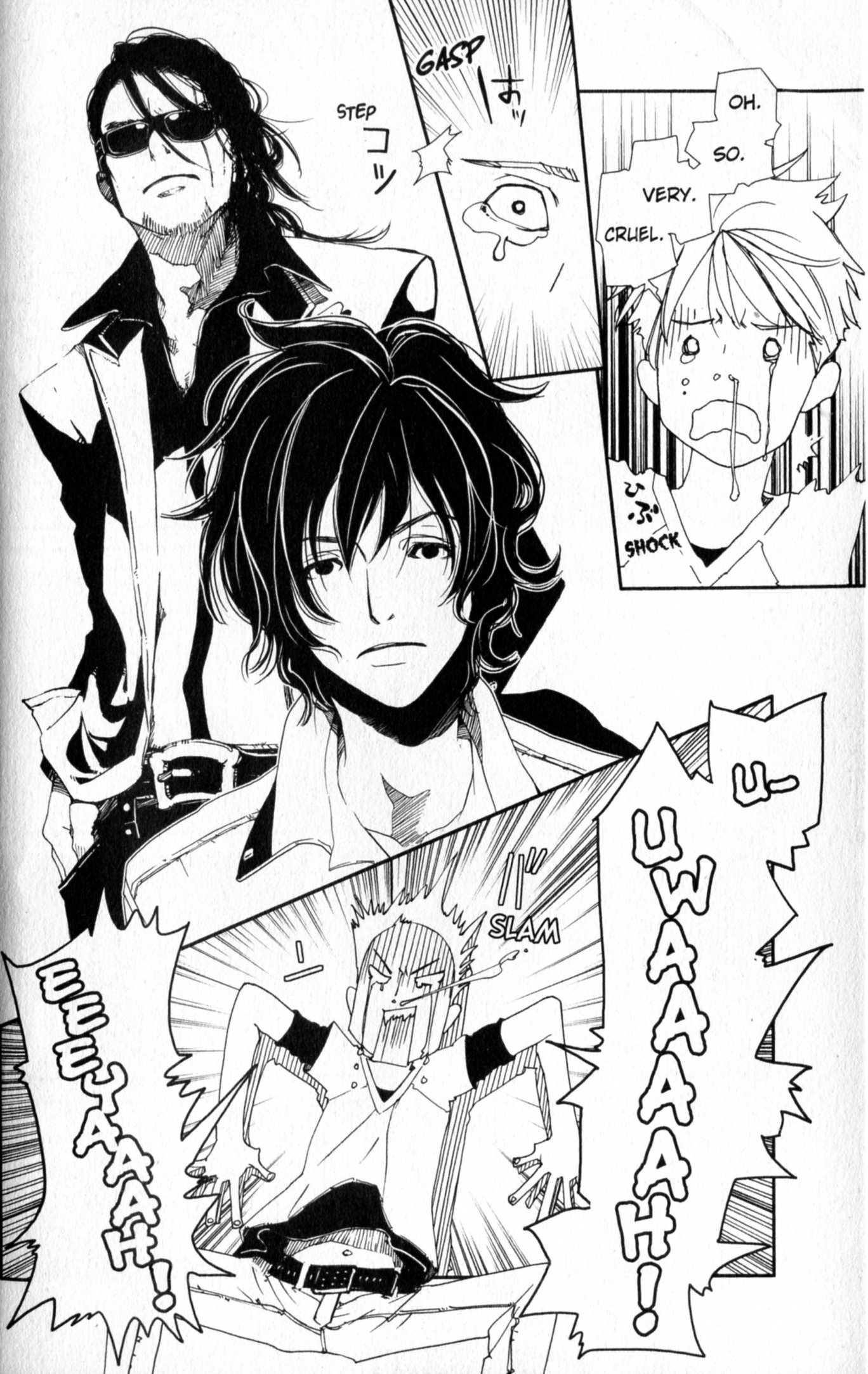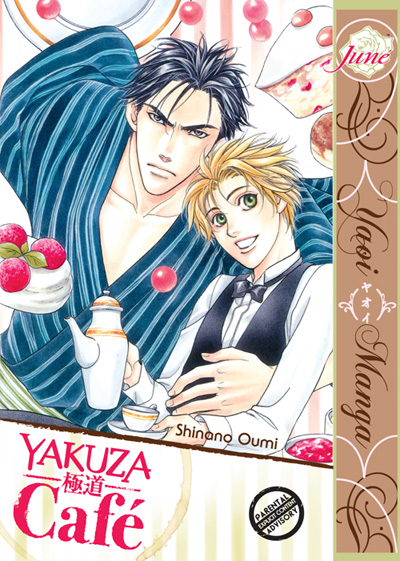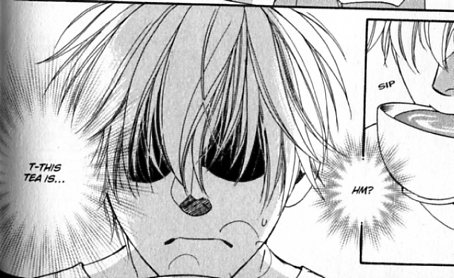“The world is rejecting me.” Our main character mutters this to himself in the opening panel. When we meet him, he is recently dumped, homeless, and trudging through a pounding rainstorm. Brilliant. He winds up at an old-fashioned tea house, tended by a slouchy, chain-smoking hottie with a cat in his lap. That is, obviously, a fine scenario.
Initially, the dialogue suffers from some obvious translation problems. I assume it’s because Japanese can have a formal quality that doesn’t really exist in English, and the translator was trying to retain all the original references to “give” – creators sometimes like to bang us over the head repeatedly with their rhetorical hammer. Once we get past the iron-fisted enforcement of the leitmotif, we can concentrate on how cool and sort of mysterious the tea guy is and how much of a candy-assed, over-emoting weirdo the homeless, wet guy is.
The wet guy was dumped by his boyfriend, who left him with a mountain of debt and nowhere to go – thus the wandering around in a typhoon thing. He immediately falls for tea guy, after a certain amount of clinically insane emoting, and tea guy seems amused and, of course, provisionally interested, because that’s how these things go. There are lots of cat reaction shots along the way to make it worth your while.
Wet guy is one of those characters whose innocent, inherently sunny disposition is supposed to be sweet and refreshing, and of course his idiocy leads him to deep human understandings. It doesn’t take much to please him, he’s loyal as a dog, and so on and so on. I find all this consistently annoying, but perhaps that’s because I’m uneasy with mindless optimism. Perhaps it’s a personal failing on my part.
(OK, spoilers ahead, if that sort of thing bothers you.)
Tea guy is much more interesting. He’s from a yakuza family, and his retainer, Ritsu – a big, biker-looking guy who can get away with wearing sunglasses during the day, indoors – is several kinds of hot.
I would have much preferred putting Ritsu and tea guy together, but that was obviously not to be. Because wet guy has to crack the rock-hard edifice of tea guy’s pain and guilt with his simple, honest, healing idiocy. I know the drill. I never much took to wet guy, but tea guy has depth, and when we start getting his back story in the second half of the book, things get more interesting, emotionally. There’s also a smattering of incidental kink at the end that I enjoyed. (It isn’t supposed to be incidental – it’s the whole reason tea guy is the way he is – but there’s only a couple of pages devoted to it, and it’s resolved cleanly and almost painlessly, so it feels incidental.)
The end is too pat in general, but that’s hard to get away from. You have a man who’s hiding from unscrupulous debt collectors and another man who disbanded a Yakuza organization, for heaven’s sake. You don’t just have individual meeting with gangster thugs, thanking them for their services and sending them home with a month’s salary. Yet, suddenly, all is well, and our main characters are setting off on a grand adventure, playful and in love. I want a happy ending as much as the next gal, but when a creator manages to capture some actual angst, you can’t help wishing they’d stick with it and ride it out.
That’s the thing with Yakuza stories, I guess. The have to be brutal or batshit crazy, and anything in-between is dangerous territory. Not that this book is a failure. There’s a flashback scene where a young tea guy is blowing bubbles. Another character asks if he isn’t too old for this, and tea guy says, “I like watching them. They ride the wind and fly to freedom.” That’s kind of how I feel about this book, if freedom can be interpreted as oblivion (meaning that I will have forgotten all about it by this time next week). A momentary pleasure is pleasure none the less.

